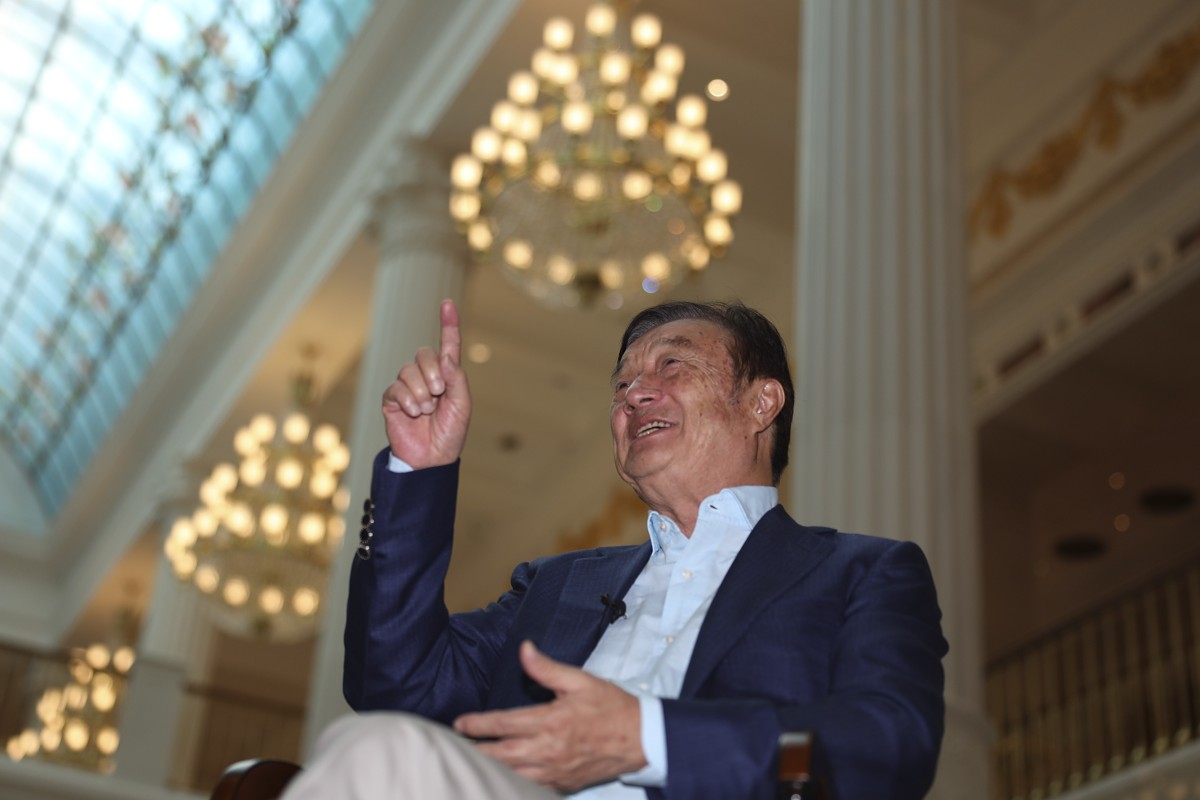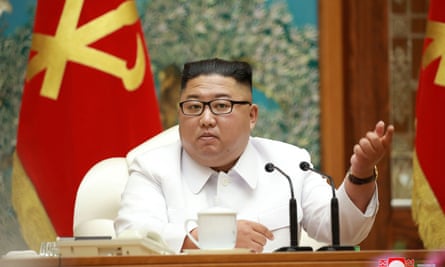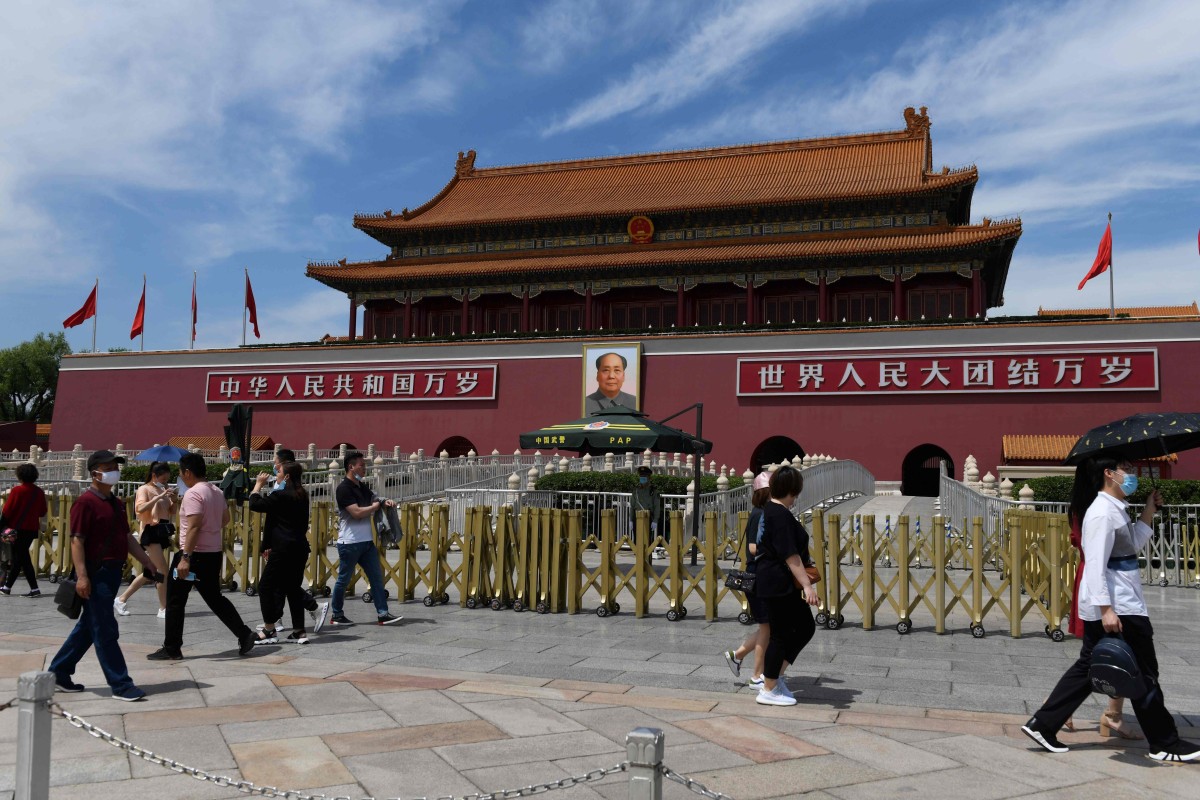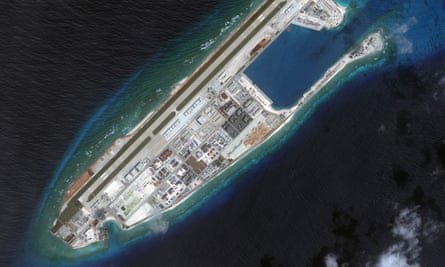
- Huawei’s short term strategy has been to stockpile chips from its key silicon supplier TSMC
- The company’s carrier business, which includes 5G, is about one third of total company revenue.
- Huawei Technologies founder Ren Zhengfei told the Post earlier this year that he after retiring from the company.
“My biggest wish is to drink coffee in a cafe unnoticed,” said the 75 year old.
But standing between Ren and those anonymous visits to coffee shops is probably the biggest decision of his career.
In May, the Trump Administration announced a new direct product rule (DPR) that effectively blocks Huawei's access to advanced semiconductors – the brains inside all of its products. While Huawei was able to survive Washington’s first attempt to deny it access to US core tech in May last year, this time it has no wriggle room left.
Huawei’s short term strategy has been to take advantage of a two month grace period to stockpile chips from its key silicon supplier TSMC. After September, TSMC and other companies that use US chipmaking equipment (including China’s SMIC) will need a waiver from Washington to supply Huawei.
A Jefferies report earlier this week said Huawei has enough inventory of 5G base station chips to last until the end of next year, but after that the situation was “highly uncertain”.
If Huawei is hiring lawyers and consultants to find loopholes in the new ruling it is very likely wasting money. “We reaffirm that we will implement the rule aggressively and pursue any attempt to evade its intent,” US Commerce Secretary Wilbur Ross was quoted as saying by Reuters last month.
So what is the long term solution for Huawei? There has been speculation that it could find an alternative wafer fabrication partner to TSMC – one that can supply chips made using equipment from Europe and Japan instead.
Even if that were feasible, it is unlikely Japan, The Netherlands and Germany – the main suppliers of non-US chip making gear – would openly defy Washington by making it possible for Huawei to continue buying 5G chips.
Earlier this year Dutch company ASML was blocked from shipping the latest generation EUV lithography machine to Chinese foundry SMIC under pressure from Washington.
With its 5G chip stockpile set to run out sooner or later, Huawei doesn’t have many options. It could take a decade or more to come up with a viable alternative to US chipmaking technology, and the billions of dollars Beijing has vowed to spend to upgrade China’s domestic chip industry may not help either because in many instances that needs US equipment, so is still subject to the new ban.
But there is one way Ren might be able to save his company.
- Although Huawei’s relationship with the US has soured over a , 5G is at the core of the current confrontation. And Trump is winning.
The tide has turned against Huawei in the international 5G markets, especially after Boris Johnson’s decision earlier this month to ban the company from Britain’s 5G roll out. However, this is all moot because when its stockpile of 5G base station chips runs out, Huawei won’t be able to provide the same products anyway – including to its domestic Chinese telco customers.
By that stage, Huawei's other products would also be starved of semiconductors. That is, unless Ren cuts 5G loose and refocuses on his other businesses, such as smartphones, where it is No 2 behind Samsung Electronics.
Huawei’s carrier business, which includes 5G, is about one third of total company revenue. Walking away from 5G would be a bitter pill to swallow – not just for the loss of revenue. Huawei is viewed by the Chinese government as a global tech champion and bulwark against US dominance in tech.
Amid deteriorating relations with Washington last year, Ren himself offered to share Huawei’s 5G technology with a major western company for a one-time fee. His motive seemed to reflect a preference to battle a US competitor in the market than fight the US government.
If US-China relations were not so toxic, such an offer might have helped, but not now. In the current geopolitical environment, any Chinese tech company with perceived links to Beijing is a target, with ByteDance’s TikTok short video app also in the Trump Administration’s cross hairs. There has been media speculation that ByteDance could sell TikTok to a buyer to head off its problems.
If Huawei withdrew from the 5G business altogether it would still earn royalties from its patents. Or the company could consider selling its 5G patent portfolio outright, which might provide a face saving exit for Ren.
This is, assuming Washington hardliners don't want to kill Huawei outright – regardless of what business it operates in.
Since he founded Huawei more than 30 years ago, Ren has fought many battles in the marketplace. The former PLA engineer likes to invoke military slogans to motivate the company troops, especially during difficult times.
- That mindset has alarmed some in Washington, including FBI director Christopher Wray. In a widely reported speech on China to the Hudson Institute on July 7, Wray was perturbed after reading in a speech to employees, as reported in The Wall Street Journal last month.
“He reportedly told employees that to ensure the company’s survival, they need to – and I quote – ‘surge forward, killing as you go, to blaze us a trail of blood’,” Wray said. “He’s also reportedly told employees that Huawei has entered, to quote, ‘a state of war’.”
It doesn't sound like Ren intends to mount a tactical retreat on 5G so he can live to fight another day. But Huawei will soon run out of “ammunition” in the form of 5G chips. And that could mean the loss of thousands of highly skilled jobs.
After this battle is over, Ren may find it even harder to go unnoticed in coffee shops in retirement.





